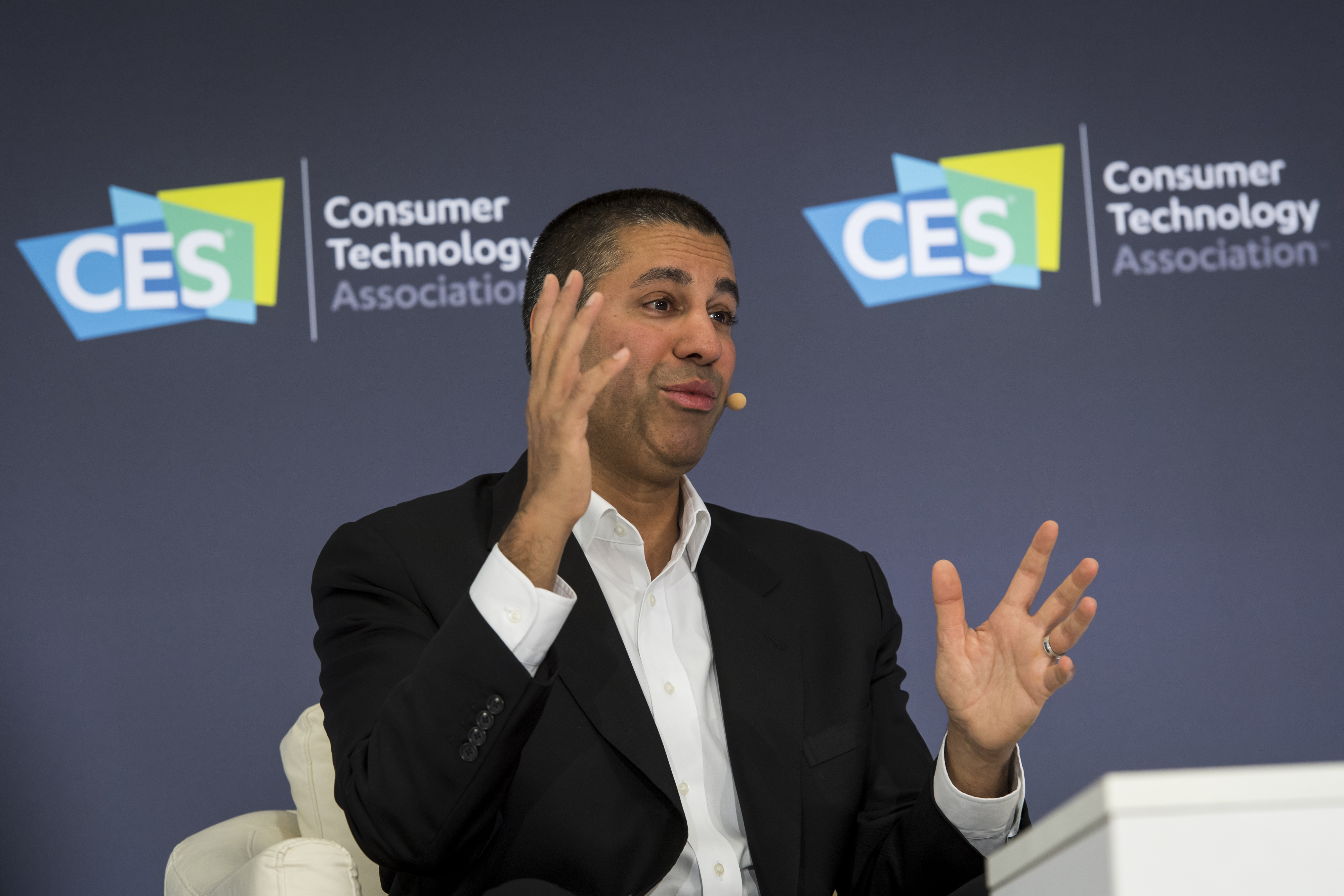Ajit Pai Still Thinks Killing Net Neutrality Was a Brilliant Idea

Credit to Author: Karl Bode| Date: Wed, 08 Jan 2020 16:35:06 +0000
Ajit Pai continues to double down on the claim that net neutrality was a huge boon for American consumers, even if supporting evidence for that claim remains largely nonexistent.
Speaking at the Consumer Electronics Show (CES) in Las Vegas this week, Pai once again insisted that his decision to ignore the public and repeal net neutrality protections resulted in faster broadband speeds for consumers—and a spike in overall network investment.
“Since we made the decision in December 2017, broadband speeds are up 60 percent according to Ookla, infrastructure investment is up, more Americans are getting connected to the internet than ever before,” Pai said during a stage panel with Gary Shapiro, CEO and President of the Consumer Technology Association, the producer of CES.
While broadband speeds have increased over the last few years, there’s little to no evidence suggesting Pai’s unpopular policies had much to do with it.
Last September, a massive study reviewed telecom earnings reports and SEC filings between 2009 to 2018 and found absolutely no evidence that the repeal helped spur US broadband network investment. The findings mirrored another major study by consumer group Free Press, which found some ISPs actually invested more while the rules were active.
Numerous journalists have come to the same conclusion after digging through industry earnings reports. Even telecom industry CEOs have admitted repeatedly to investors—who by law they can’t lie to—that the rules had no impact on their broadband investment strategies.
Yet Pai remains undaunted in his claims that his net neutrality repeal, which a large bipartisan majority of the public opposed, directly resulted in faster, better, U.S. broadband.
“More fiber was laid in 2019 to homes and businesses in the United States than in any year since they’ve been keeping records, breaking the record we set in 2018,” Pai told conference attendees.
But much of the recent fiber growth Pai cites was thanks to frustrated towns and cities building their own broadband networks, something his FCC actively opposes. Other fiber growth was thanks to conditions affixed to AT&T’s 2015 merger with DirecTV by the previous FCC, which required it deploy fiber to 12.5 million homes that otherwise would never have received it.
With those conditions expiring, AT&T told investors last October that its network investment in 2020 would actually be shrinking by around $3 billion, despite the net neutrality repeal and the billions of dollars the company received from the Trump tax cuts.
Consumer groups have been quick to note that the FCC’s Orwellian-named “restoring internet freedom” order did far more than just kill net neutrality. It eroded the FCC’s ability to police internet service providers (ISPs), shoveling that responsibility over to an FTC former FCC officials say lacks the authority or resources to adequately police big telecom.
The resulting oversight vacuum was the telecom lobby’s entire goal, but has created a number of problems Pai has been keen to ignore. The FCC still has done nothing to address the location data scandals plaguing the wireless sector. Nor has it stepped in to stop ISPs from charging numerous bogus fees, including a “rental fee” for modems they already own.
Pai’s fealty to the telecom sector was so total, the FCC’s repeal order even tried to ban states from stepping in to protect consumers, something recently slapped down by the courts as an overreach by the FCC.
So while the FCC’s repeal did a wonderful job killing oversight of some of the least popular companies in American industry, supporting evidence that it actively improved U.S. broadband remains largely nonexistent. Worse, the repeal process itself was rife with fraud and identity theft, another problem Pai’s FCC hasn’t been particularly keen to address.
In 2018, Pai had to cancel his visit to CES due to death threats over the net neutrality repeal. In 2019, Pai cancelled his scheduled appearance due to the government shutdown. This year Pai finally attended the event, with the apparent goal of trolling the American consumer.
“I would like to say that thanks to our efforts, more Americans than ever before, faster than ever before, are able to hate-tweet their favorite FCC chairman,” Pai told the crowd.
This article originally appeared on VICE US.